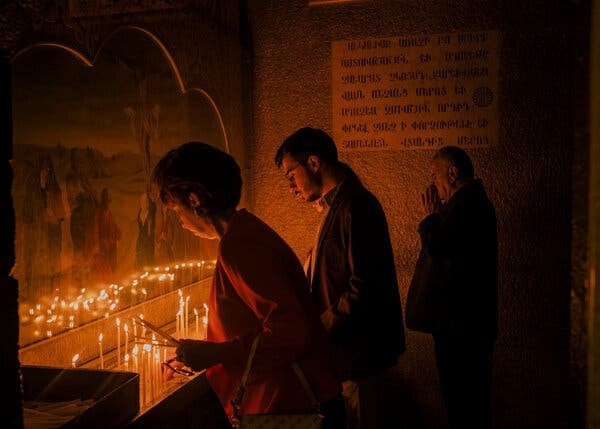
At one of the most famous Christian churches in Damascus, the Melkite Greek Catholic cathedral known as Al Zeitoun, the bishop spent part of Sunday’s Easter sermon comparing Jesus’s Resurrection to that of Syria.
The metaphor was an obvious one. Less than five months have passed since Syrian rebels overthrew President Bashar al-Assad, putting a sudden end to the Assad family’s brutal half-century reign. The new Syria, liberated Syria, is still rising to its feet.
But what that new nation will come to look like is an open question. While many Sunni Muslim Syrians have embraced the country’s new leaders, who espouse a conservative version of Islam, religious minorities who felt protected or empowered during Mr. al-Assad’s rule greeted the takeover with anxiety.

Easter, for Syria’s historically persecuted Christians, was therefore something of a test. How would the new government led by President Ahmed al-Shara, a former Al Qaeda member who says he has moderated and who has promised inclusivity and tolerance, handle one of Christianity’s most important holidays? Would it pass as peacefully as it had under Mr. al-Assad, who courted minority support with his secular outlook?